Why there is nothing like a Greek summer

The Greek summer is renowned for its unique charms and delights, attracting millions of visitors from around the world each year, in search of their very own slice of paradise. Blessed with a Mediterranean climate, the time from early June through mid-September is typically warm and dry, creating the ideal conditions for outdoor activities, water sports, sightseeing, and … you’ve guessed it: sunbathing.
The Greek islands, in particular, have become synonymous with summer vacations, famed for their beaches, crystal clear waters, and offbeat, soulful way of life. Each island has its own unique character; some are wildly popular for their vibrant nightlife or family-friendly beaches, while others offer the perfect escape from the crowds, making them the ideal destination for romantic getaways. Having said that, don’t overlook the many spectacular destinations on the mainland! The Peloponnese in the south and the Halkidiki region in the north are two places that immediately spring to mind. Mountains or coastlines, there’s something for everyone.
Wherever you choose to go, you’re sure to encounter beautiful landscapes, fascinating cultural heritage, delicious local cuisine, and warm hospitality – the ancient custom of “philoxenia,” meaning love of strangers. In the following sections, we explore some of the reasons that make the Greek summer a truly exceptional experience.
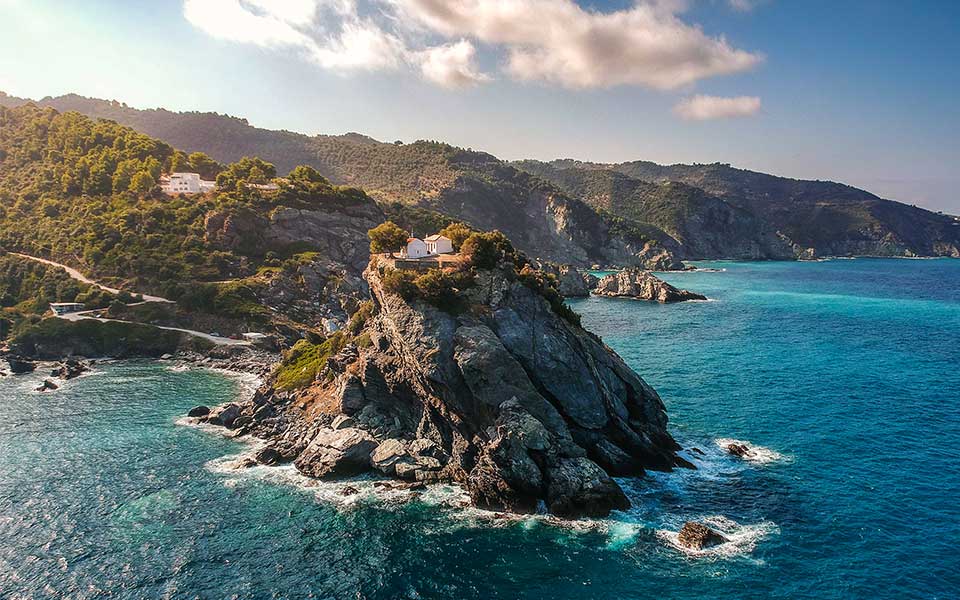
Breathtaking landscapes
Greece is famous for its stunning landscapes, from the rugged mountains of the mainland, to the picturesque coastlines and islands of the Aegean and Ionian Seas. The combination of crystal clear waters, golden beaches, and lush greenery creates a mesmerizing backdrop for any summer vacation.
Greece boasts a vast number of islands, each with its own distinct character and beauty. Island hopping is a popular activity during the summer, allowing visitors to explore multiple destinations, soak up the sun on stunning beaches, discover hidden coves, and indulge in the laid-back island lifestyle.
With its diverse landscapes, Greece offers numerous outdoor activities to suit different interests. Whether it’s hiking in the mountains, exploring ancient ruins, sailing around the islands, or simply enjoying a sunset walk along the coastline, there is no shortage of things to see and do.
If you’re looking for inspiration, check out our comprehensive A-to-Z guide to the Greek summer here.
The islands of the Aegean are especially popular in summer, famed for their whitewashed buildings and sapphire blue seas. But if you’re looking to escape the madding crowds, the Ionian islands, on the western side of Greece, are a good option, blessed with lush greenery, rich cultural heritage, and gastronomic treasures, including “bourdeto,” a traditional fish dish from Corfu. Click here for our guide.
If exploring fairytale villages off the beaten path is more your thing, have a look at our guide here.
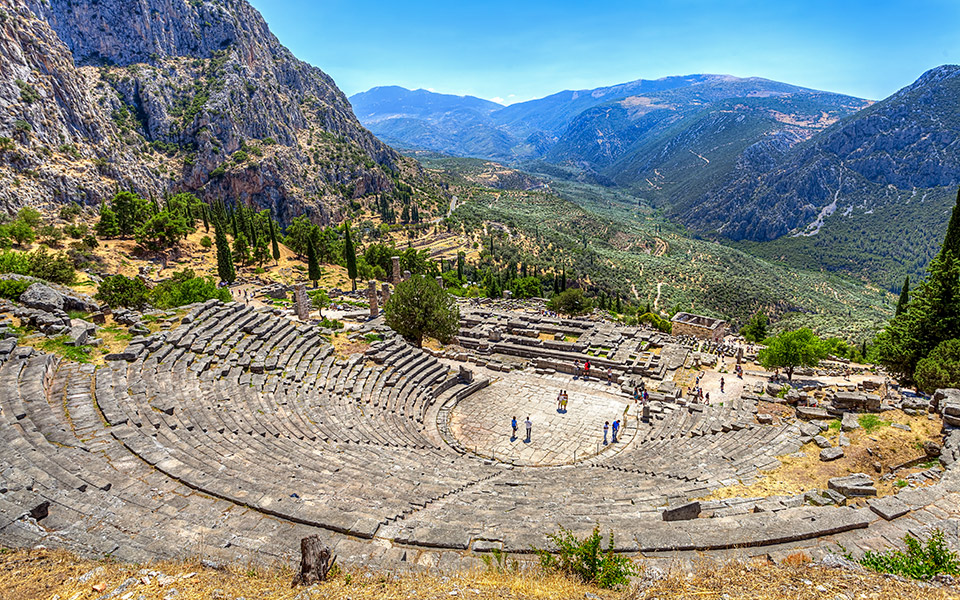
Rich history and culture
For archaeology buffs and culture vultures, Greece is a veritable paradise. Steeped in history, the country boasts a rich cultural heritage that stretches back millennia, forming the bedrock of Western civilization. Greece’s strategic location in the eastern Mediterranean also made it a crossroads for various civilizations throughout history, including the Byzantines, Romans, Venetians, and Ottomans, each leaving behind their own influences on Greek culture, architecture, language, and traditions.
Thanks to its rich history and culture, the country is home to some of the most important and iconic archaeological sites in the world, including the Palace of Knossos on Crete, the Sanctuary of Apollo at Delphi, and the Acropolis of Athens.
Summer is an especially good time to explore Greece’s countless ancient ruins, medieval castles, churches, monasteries, and on-site museums. For large, open-air sites with little shade, its best to avoid the middle of the day. For our money, the soft light of early morning and/or the late afternoon are the best times to visit. Whatever time you choose, be sure to wear appropriate footwear, a wide-brimmed hat and sunglasses, and pack plenty of water.
If you’re looking for inspiration, check out our comprehensive guide to Greece’s 18(!) UNESCO World Heritage Sites here.
While most towns, cities, and regions of Greece have more historic sites than you can shake a stick at, Athens packs more archaeology per square inch than just about anywhere on the planet. The birthplace of the Western democracy, the Greek capital is also home to some of the world’s best museums. If you’re heading to Athens this summer, have a look at our sites and museums guide here.

Warm Hospitality
Greek hospitality, known as “philoxenia,” is a deeply ingrained cultural trait that reflects the warm and welcoming nature of the Greek people. It encompasses a genuine spirit of generosity, friendliness, and a willingness to embrace and care for visitors. Whether it’s in hotels, restaurants, or local homes, visitors to Greece can expect to be greeted with genuine smiles, heartfelt greetings, and a willingness to make them feel at home.
Greeks are also renowned for their generosity. From offering traditional Greek treats and drinks to sharing their homes and experiences, it’s common for hosts to go above and beyond to ensure visitors feel welcome. Greeks take pride in sharing their culture, traditions, and delicious cuisine with others, creating an unforgettable experience for tourists. They’re also genuinely curious to learn about visitors’ backgrounds, cultures and personal experiences.
If you ever lose your bearings, or you’re looking for recommendations for things to see and do, don’t be shy to ask for help. Whether it’s providing directions or recommending local attractions and activities, Greeks will often go out of their way to offer assistance.
To learn more about the legendary Greek hospitality, click here.
To get an in-depth view from an anthropologist, click here.
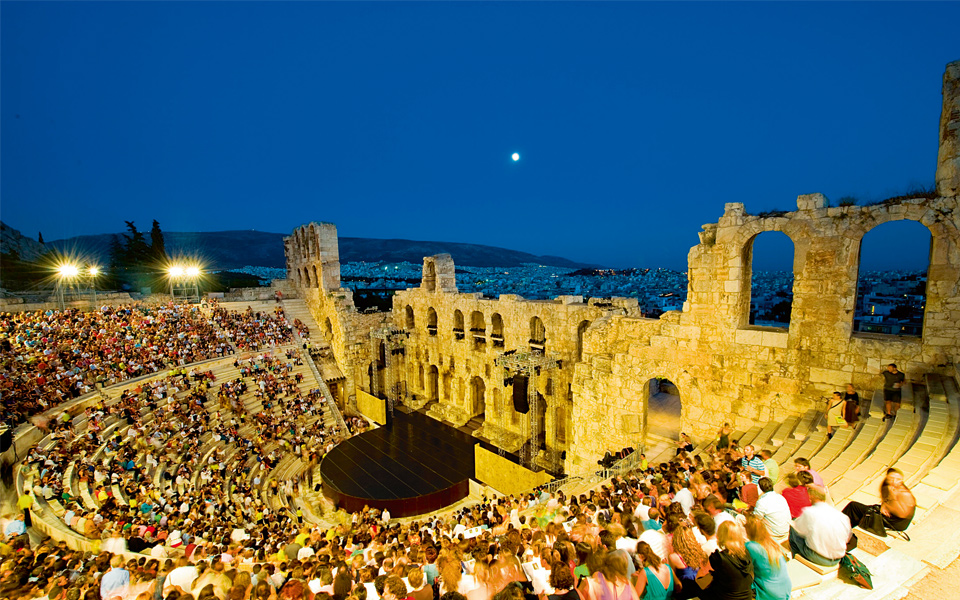
Vibrant festivals and events
Greece is renowned for its vibrant festivals and events, which showcase the country’s rich cultural heritage, traditions, and lively spirit. These celebrations provide an opportunity for locals and visitors alike to immerse themselves in Greek customs, music, dance, and culinary delights.
The country boasts a plethora of festivals and events in the summer months. From traditional religious celebrations to music and cultural festivals, there is always something happening.
The most renowned summer arts festival is the Athens-Epidaurus Festival, which takes place in various venues in Athens and the iconic Ancient Theater of Epidaurus. The festival features a diverse program of theatrical performances, including ancient Greek tragedies, music concerts, dance shows, and cultural events, showcasing both Greek and international artists. Click here for our guide to this year’s festival.
The most notable religious festival in the summertime takes place on August 15, the Dormition of the Virgin / the Assumption of Mary (the ascension of the Virgin Mary to Heaven). Divine liturgies take place at churches and monasteries throughout the country, with many spilling over into local fetes, attracting tourists and locals alike. The celebrations on the Cycladic island of Tinos are especially poignant. Check out our guide to this most revered national holiday, known colloquially as the “Easter of Summer.”
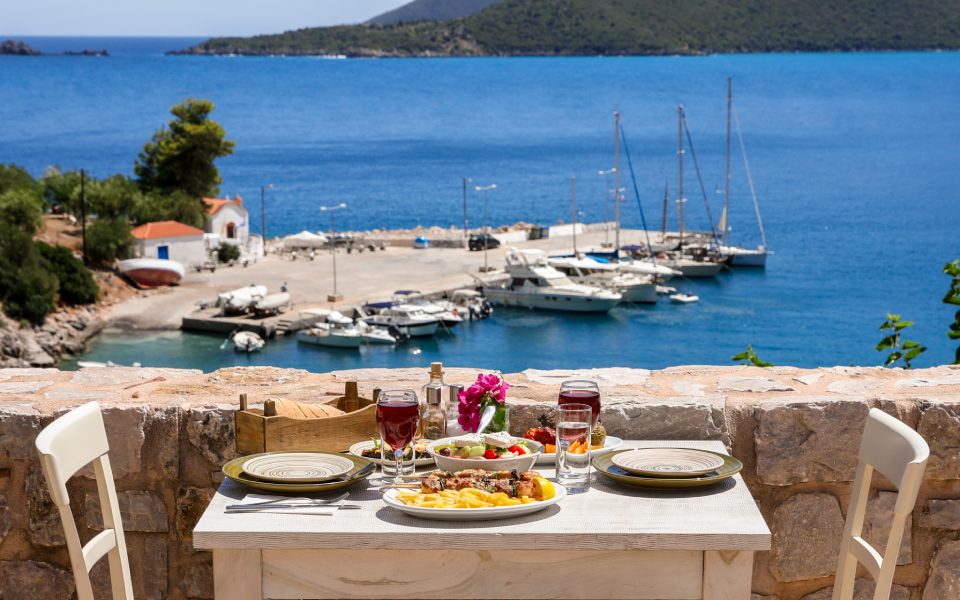
Delicious cuisine
Greek cuisine is renowned for its fresh, simple ingredients and flavorful dishes. Deeply rooted in the Mediterranean diet, it emphasizes the consumption of fruits, vegetables, whole grains, legumes, and olive oil – lots of olive oil! – and has gained international acclaim for its numerous health benefits.
Being surrounded by the Mediterranean Sea, Greece offers an abundance of fresh seafood. Octopus, calamari, shrimp, and a variety of fish are commonly enjoyed in the summer, preferably in a rustic seaside taverna accompanied by a glass of ouzo or local wine. “Meze” culture, which refers to a selection of small, flavorful dishes served as appetizers or shared plates, is another unmissable gastronomic experience of the Greek summer.
From the famous Greek salad (“Horiatiki”) to moussaka, souvlaki, and baklava, the culinary delights of Greece are a treat for the taste buds.
Click here for our guide to some of Greece’s most beloved traditional recipes.
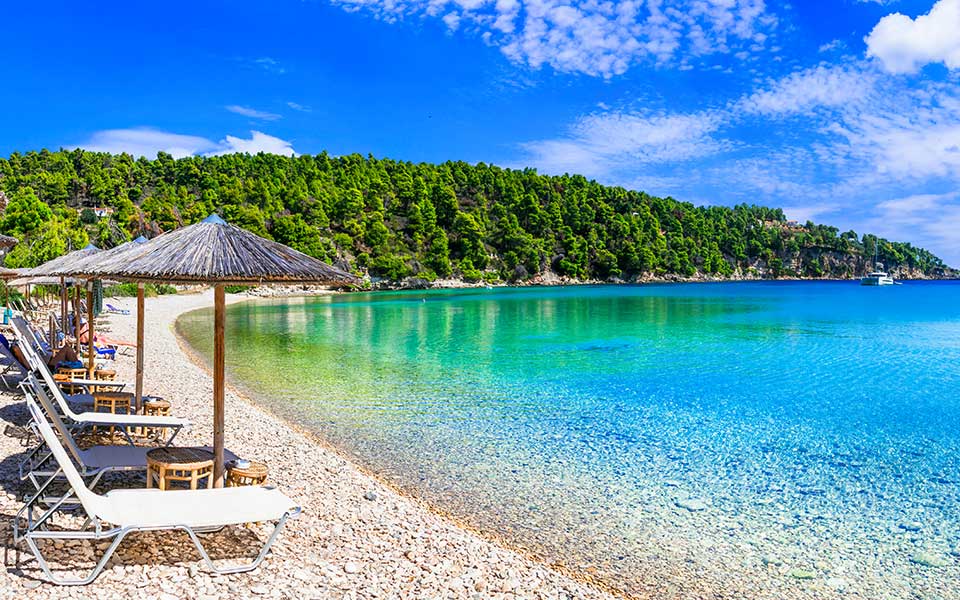
Mediterranean climate
Greece enjoys a typical Mediterranean climate, characterized by long, hot summers and mild winters. The abundance of sunshine and warm temperatures in the summer months make it an ideal destination for outdoor activities, beach visits, and al fresco dining.
Greece’s fabulous climate also supports a diverse range of ecosystems and a rich array of flora and fauna, from the iconic olive groves and vineyards to fragrant citrus orchards and colorful wildflowers. It’s also associated with numerous health benefits, promoting physical well-bing and mental rejuvenation.
This article first appeared in Greece Is (www.greece-is.com), a Kathimerini publishing initiative.





